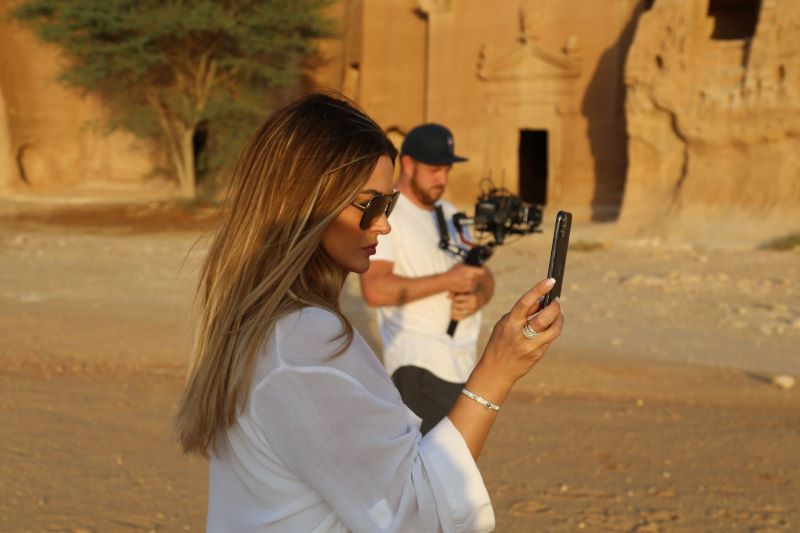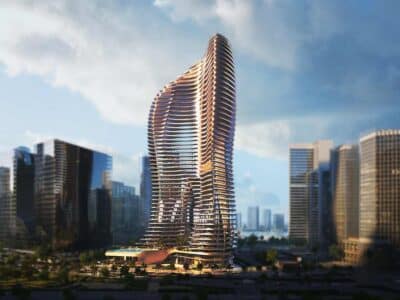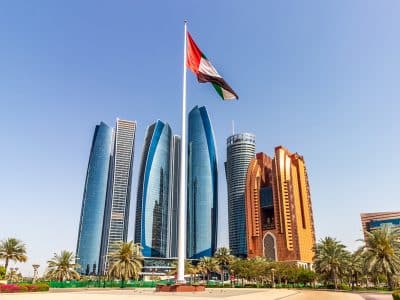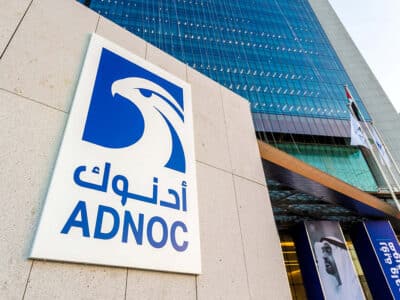It is a combination of Carla DiBello’s love for the Middle East and her passion for storytelling that ultimately led her to conceive Arabia Plus, an online streaming platform and production house focused exclusively on content from the region for a global audience.
Set to be launched next month, the platform will feature seven originals produced by DiBello’s team, including a short film and a series, as well as Arab films and content from budding regional filmmakers (the platform is accepting submissions for that).
DiBello first visited Dubai in 2006 and told Arabian Business she “fell in love with it and decided I want to live here someday”.
Coming from the US, the American documentarian said the city “was such a foreign place at that time, but already Burj Al Arab and a few hotels at Jumeirah Beach were hinting of what was to come”.
DiBello kept coming back to the UAE for different projects, which linked the US to the region, before finally moving to Dubai in 2014.
“Something was always pulling me back here and so I started realising there was so much opportunity with people and businesses in the US that didn’t know what to do to get deals done in this part of the world,” recalled DiBello.
“They would be trying to raise capital for their companies, which had great track records, but they couldn’t meet the right person or have the right access to people here,” she continued.
This led her to launch CBD Advisory, a consulting firm that bridges connections across private sectors throughout the Middle East and North America, in 2013.
“The way I describe Dubai back then is like New York City or Manhattan when it was first being developed and you’re at this place where you’re part of the change,” said DiBello.
“Potential investors would be saying that they want to bring a brand that doesn’t exist in the GCC yet to the market here and I would be like, I know the owner of that company that can help you. It was just a constant putting the puzzle pieces together,” she continued.
CBD Advisory is based in Dubai, but DiBello said she had lot of business in Kuwait as well and branched out into Saudi Arabia after meeting a businesswoman focused on the kingdom.
“That was my first introduction into Saudi Arabia but I always knew, from having Saudi friends back in California, that there’s so much potential in the kingdom. It’s just about the mindset and changing perspective,” she said.
“Now, to see how much everything is changing there… I feel like I’ve had a front row seat to it all,” added DiBello.
Much has been written about her role in Saudi’s Public Investment Fund’s acquisition of English football team Newcastle United FC but DiBello declined to comment about it to Arabian Business, focusing instead on how the kingdom was where she first delved in film-making in the region.
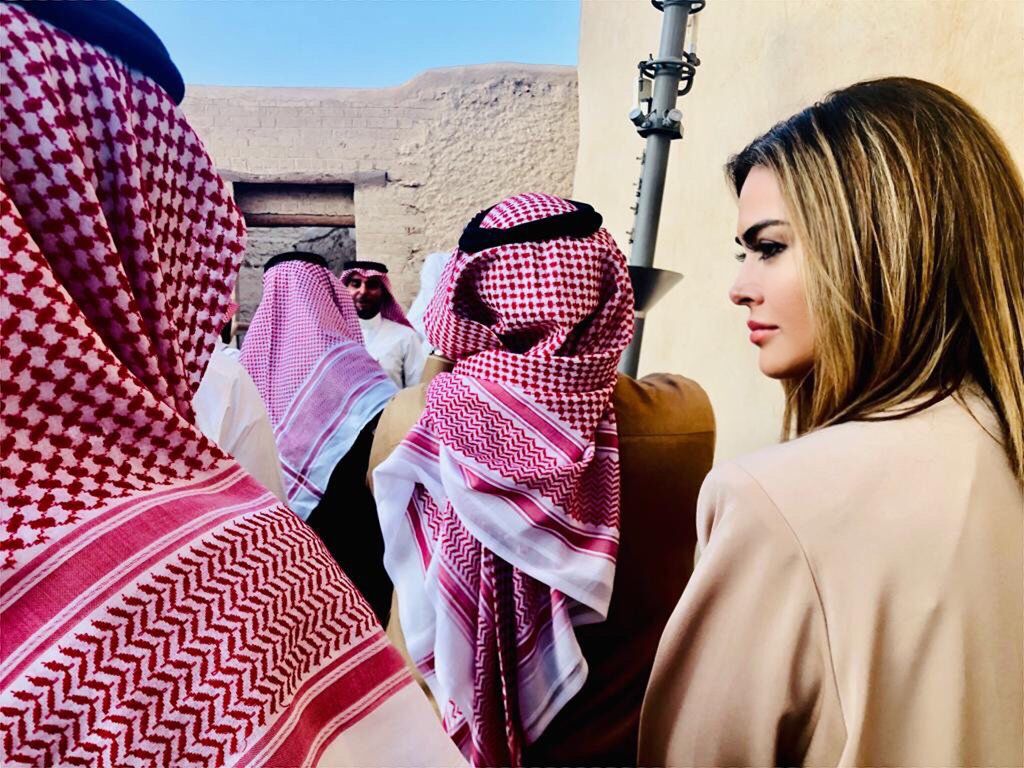
Having moved to Los Angeles at the age of 18 to pursue a career in the entertainment and movie industry, DiBello said: “I always had this calling for storytelling and production, but I just never could find the right niche of people to do it with here [in the region]. We looked at different investments into regional studio but I just felt that the market wasn’t ready yet.”
Then, in 2018, Saudi Arabia was set to launch its first Formula E event and DiBello saw in that an engaging story of a country’s transformation.
“I felt that we have to tell this story. It was the first time they were having a Western concert with men and women going together and the first female race car drivers hitting a national track. So many changes were happening and no-one was really documenting the story in the way that I saw it,” said DiBello.
“They had film crews that were covering the building of the track and aspects like that, but no-one was covering the excitement of Saudi nationals, who were getting to showcase their country and inviting their friends from school to come visit for the race,” she continued.
DiBello ended up putting together a film crew, leveraging the network she built up during her years in LA, to shoot a documentary entitled Electric Kingdom, which told the story of Saudi Arabia at the time of the Formula E and was led by Oscar-nominated director David Darg.
The experience made DiBello realise that there was a gap in storytelling in the region, which led her to conceptualise Arabia Plus.
“There are a lot of local productions in Arabic, and that’s great. But there’s so many rich stories from this part of the world that never reach globally, whether that’s because they are in Arabic or just done in a different way,” said DeBello.

She also touched upon Hollywood blockbusters, which were filmed in the Middle East, saying that although they bring visibility to the region, they are largely “anonymous. There’s no culture behind it, so it doesn’t equate to something that’s going to help this part of the world.
“I’m not trying to be a one-hit-wonder and make a $100 million movie to get funding from a government. I want to show how we can build a real infrastructure, develop regional talent and do things more here,” said DiBello.
Through Arabia Plus, DiBello wants to provide a curated selection of visual content – be it movies, documentaries or series – created by people from the region to combat the stereotypes westerners typically have about the Middle East.
“The biggest advantage [of a streaming platform] is that you can break stereotypes down through storytelling and showing people the beauty of the region. My friends don’t know the difference between Saudi and Dubai, unfortunately,” said DiBello.
“But everyone is on streaming platforms nowadays so there’s the relatability for both this part of the world and outside, but the story has to be really good and authentic,” she continued.
Arabia Plus’s portfolio of original content includes a documentary about lesser known parts of Saudi Arabia called Seven Wonders of Saudi Arabia, a production in Abu Dhabi about the history of the UAE, and a psychological thriller, Maskoon, which recently debuted at Saudi Arabia’s Red Sea Film Festival.
“All Arabia Plus originals are funded by us. We’re soon going to go out and raise capital for the brand itself and will either find case-by-case partnerships or CO investors to work with on the films,” said DiBello.
“It’s really just creating a really good solid IP, knowing how valuable intellectual property is. You have to follow the changes, you have to evolve with it,” she continued, referencing Reese Witherspoon’s film production company Hello Sunshine, which the Hollywood actress sold for more than $900 million to a new company backed by private equity firm Blackstone Group Inc.
DiBello is also in talks with major regional studios to showcase their content on Arabia Plus.
“There are some great movies made in the region which did not reach a global audience and stopped here. With Arabia Plus, viewers will access handpicked curated work from the Middle East,” she said.


